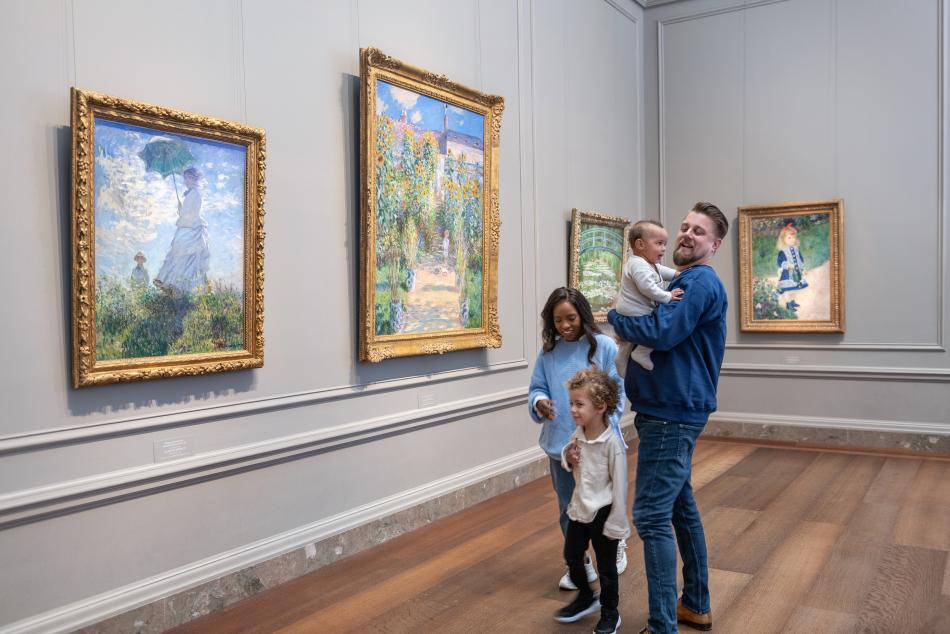
Joachim Anthonisz Wtewael
Uytewael, Joachim Anthonisz
Wttewael, Joachim Anthonisz
Utenwael, Joachim Anthonisz
Wtenwael, Joachim Anthonisz
Wtewael, Joachim Antonisz
Dutch, c. 1566 - 1638
Born in about 1566, this artist (whose surname is also recorded in such variant forms as Wttewael, Uytewael, Utenwael, and Wtenwael) was the son of Anthonis Jansz Wtewael, an Utrecht glass painter. Mander I, Karel van records that Joachim worked for his father until the age of eighteen, when he began to study oil painting with the Utrecht artist Joos de Beer (d. 1591).[1] Bloemaert, Abraham was also a pupil of De Beer.
In 1586, after two years with De Beer, Wtewael traveled to Italy in the retinue of Charles de Bourgneuf de Cucé, bishop of Saint Malo. He worked for the bishop for the next four years—two of them in Padua and two in France—before returning to Utrecht. In 1592 Wtewael joined the Utrecht Saddlers’ Guild, because at that time the city had no artists’ guild. When one was established in 1611, Wtewael was a founding member. He was also active in various spheres unrelated to the arts, notably local politics, serving on Utrecht’s city council in 1610, and again from 1632 to 1636. A Calvinist and staunch patriot, he assisted in 1618 in the overthrow of the Remonstrant magistracy of Utrecht and its replacement with a Calvinist administration loyal to the House of Orange. Other activities included running a flax and linen business, to which, Van Mander complained, Wtewael devoted more energy than he did to his art.
Nonetheless, as Van Mander acknowledged, Wtewael found time to produce a considerable number of paintings. Surviving works range in date from the early 1590s to 1628 and vary considerably in size, support, and subject. Although the majority represent biblical and mythological subjects, Wtewael also executed portraits and genre scenes. Stylistically, he was influenced by a number of different schools, from Venetian and Tuscan to Dutch, notably the work of the Haarlem mannerists Goltzius, Hendrick and Cornelisz van Haarlem, Cornelis. Wtewael was one of the few Dutch artists who did not abandon mannerism after the early 1600s, and his oeuvre demonstrates no clear stylistic evolution.
Wtewael died in Utrecht on August 1, 1638, having survived his wife, Christian van Halen, by nine years. The couple had four children, one of whom, Peter (1596–1660), was a painter who worked in his father’s style.
[1] Karel van Mander, Het schilder-boeck waerin voor eerst de leerlustighe Iueght den grondt der edel vry schilderconst in verscheyden deelen wort voorghedraghen (Haarlem, 1604), 296–297.
Explore Selected Works
Artwork

Moses Striking the Rock
Moses Striking the Rock
Joachim Anthonisz Wtewael · 1624 · oil on panel · Accession ID 1972.11.1
Artwork

The Judgment of Paris
The Judgment of Paris
Joachim Anthonisz Wtewael · c. 1615 · pen and brown ink with gray washes over black chalk on laid paper · Accession ID 1990.35.1
Artwork

The Last Judgment
The Last Judgment
Willem van Swanenburgh, Joachim Anthonisz Wtewael, Christoffel van Sichem I · 1606 · engraving on laid paper · Accession ID 2012.92.614
Artwork

Mercury and Argus
Mercury and Argus
Joachim Anthonisz Wtewael · · pen and brown ink with gray-brown wash on laid paper squared with brown ink · Accession ID 1973.41.1
Artwork

Christ Carrying the Cross
Christ Carrying the Cross
Willem van Swanenburgh, Christoffel van Sichem I · 1606 · engraving on laid paper · Accession ID 2012.92.613
Artwork

Alexander the Great Seated in Justice
Alexander the Great Seated in Justice
Willem van Swanenburgh, Christoffel van Sichem I · 1606 · engraving on laid paper · Accession ID 2012.92.610
Artwork

Allegory of Justice
Allegory of Justice
Willem van Swanenburgh, Christoffel van Sichem I · 1606 · engraving on laid paper · Accession ID 2012.92.611
Artwork

Suzannah before Daniel
Suzannah before Daniel
Willem van Swanenburgh, Christoffel van Sichem I · 1606 · engraving on laid paper · Accession ID 2012.92.615
Artwork

Beheading of the Roman Judge Papinian
Beheading of the Roman Judge Papinian
Willem van Swanenburgh, Christoffel van Sichem I · 1606 · engraving on laid paper · Accession ID 2012.92.612
Artwork

The Judgment of Solomon
The Judgment of Solomon
Willem van Swanenburgh, Christoffel van Sichem II · c. 1600 · engraving on laid paper · Accession ID 2008.55.2
Bibliography
1604
Mander, Karel van. Het Schilder-boeck. Haerlem, 1604: 296-297.
1618
Mander, Karel van. Het Schilder-boek. 1604. 2nd ed. Amsterdam, 1618: 296-297.
1929
Lindeman, Catherine Marius Anne Alettus. Joachim Anthonisz. Wtewael. Utrecht, 1929.
1986
Lowenthal, Anne W. Joachim Wtewael and Dutch Mannerism. Doornspijk, 1986.
1991
MacLaren, Neil. The Dutch School, 1600-1900. Revised and expanded by Christopher Brown. 2 vols. National Gallery Catalogues. London, 1991: 1:501-502.
1993
Luijten, Ger. Dawn of the Golden Age: Northern Netherlandish Art 1580-1620. Exh. cat. Rijksmuseum, Amsterdam. Zwolle, 1993: 326-327.
1995
Wheelock, Arthur K., Jr. Dutch Paintings of the Seventeenth Century. The Collections of the National Gallery of Art Systematic Catalogue. Washington, D.C., 1995: 393-394.
1997
Bok, Marten Jan. "Biographies." In Masters of Light: Dutch Painters in Utrecht during the Golden Age. Edited by Joaneath A. Spicer and Lynn Federle Orr. Exh. cat. Fine Arts Museums of San Francisco; Walters Art Gallery, Baltimore; National Gallery, London. New Haven, 1997: 392-393.


